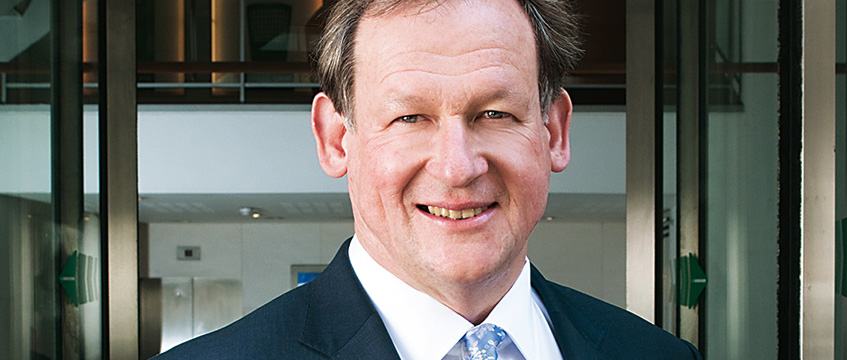There has been much comment in the national press since both the General Election and the date when Brexit was finally delivered about whether there will be a ‘Boris bounce’ to stimulate growth and renewed confidence in the residential market as a degree of stability returns.
The commercial property auctioneers have also been predicting a spike in interest – and how right they were.
From their first auctions of the year, the two main commercial auctioneers, Allsop and Acuitus, have between them sold a total of 125 properties out of a total of 155 offered, raising £85.6m and a combined success rate of 81%.
To further highlight the strength of current demand, the two main residential auctioneers, Allsop and Savills, have sold 285 properties out of 357 offered, raising a total of £85.2m and a combined success rate of 80%.
From the commercial sector, Allsop was the first house to the rostrum on 11 February.
In the room, having sold 22 lots prior, they sold a total of 87 properties out of the 107 it offered for £64.1m with a success rate of 82%. It sold three lots post-auction for circa £2.4m, which brought the total to £66.5m and a success rate of 84%.
Of the 25 properties that were guided at £1m or more, six were sold prior and 14 sold under the hammer, showing a success rate of just those lots of 80%. Four of these lots sold for over £2m and all were located in the north of England: two in Warrington, one in Huddersfield, and one in Mexborough, near Rotherham.
The largest lot to sell on the day was Lot 80, a multi-let freehold industrial investment close to Junction 10 of the M62 in Winwick Quay, Warrington. Comprising 45 units let to a variety of tenants at a total rental of £276,071 pa, it was guided at £3m plus and sold for £3.7m, a gross return of 7.5%.
But I was surprised to see the next lot, Lot 81, in one of my favourite towns – Northallerton – not selling. A most attractive freehold bank investment, let to HSBC Bank until November 2021 at a rent of £93,700 pa, it was guided at £1.3m, which would have shown a gross return of 6.94%. But it failed to sell.
However, I was also particularly interested to see how the vacant retail properties fared in view of the current general dismal view of the high street. Allsop offered 10 with vacant possession, selling nine of them, of which three sold prior and one sold afterwards.
Examples of note selling under the hammer were Lot 14 in Goldhawk Road, Shepherds Bush, London W12 for £360,000; Lot 39 in Barnet for £685,000; Lot 100 in Clevedon for £565,000; and Lot 101 in Purley for £710,000. Surely, a general vote of confidence for the high street.
Acuitus held its sale a day later and offered seven properties with a guide price at or in excess of £1m, selling five of them, with four under the hammer.
The largest to sell was Lot 21 in High Street, Skipton, being offered on behalf of Praxis. A freehold bank investment on the ground, basement and first floors let to Barclays Bank until 2026 at a rent of £140,000 pa, and with the second floor of 1,250 sq ft currently vacant, the property was guided at £1.7m and sold for £1.75m – a gross return of 8%. Interestingly, it had been offered at Allsop’s October 2019 sale but had failed to sell at £1.85m. And before then, it had previously been sold by Acuitus in July 2017 at £1.7m.
Another Lot offered by Praxis in this sale clearly demonstrated how active estate management and a bit of good fortune can enhance a property’s value. Lot 9 on the Arlington Business Park in Whittle Way, Stevenage, was a freehold office investment which had been offered back in February 2019 by Acuitus when it failed to sell at £695,000. It was then let to a local covenant for a term of three years until March 2020, at a rent of £50,000 pa.
The lease clearly came to an end and it was then let to Tollers, a large firm of solicitors with 163 employees, on a new lease for a term of 10 years from January 2020 at a rental of £94,000 pa. It was offered in Acuitus’ February auction with a guide price of £1.1m and sold for £1.25m – a gross return of 7.49%.
Acuitus overall offered 48 properties, selling a total of 32 lots in the room, with five having been sold prior and a success rate of 67%. A further three sold after the auction, bringing the total raised to £19,112,000 and the success rate to 73%.
While the market is still largely unpredictable, the two sales clearly demonstrated that the strength of demand is undiminished for the right product in the better locations.
By the time the next auctions take place in late March, we may know by then what effect, if any, the first Budget of this new government will have had on investor confidence.
The challenge is for the auction houses to secure another quality tranche of realistically priced properties over the next few weeks to offer at the end of next month.
John Townsend is head of the auction advisory service at Harold Benjamin











